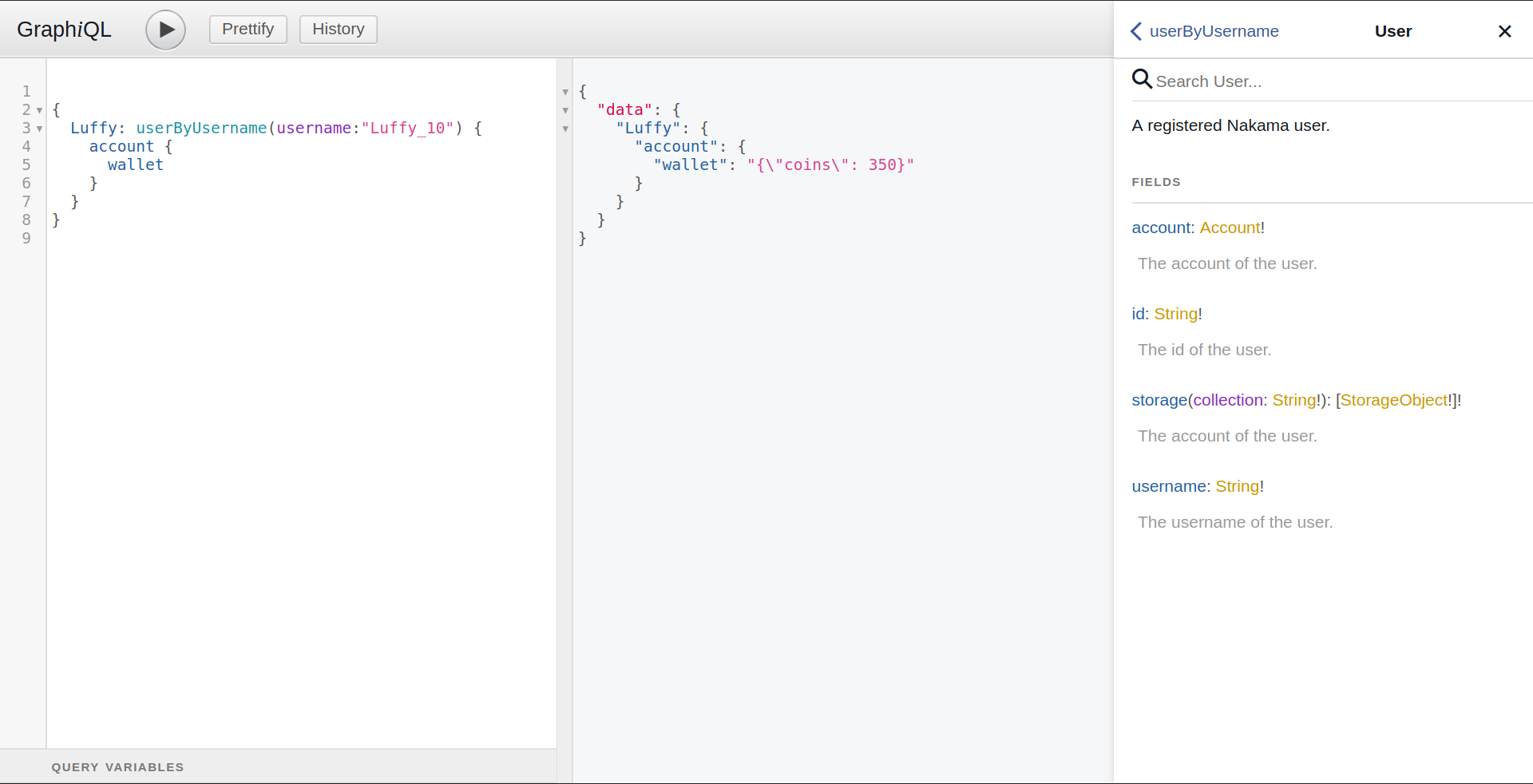Opinionated extended apis and tools on top of the Nakama server
Allows for more fluent use of Nakama's storage collections, taking care of json marshalling and unmarshalling, default values and bulk reads.
import (
"context"
"github.com/heroiclabs/nakama/runtime"
"github.com/mastern2k3/poseidon/storage"
)
var (
statsAccessor = &storage.CollectionAccessor{
CollectionID: "stats",
KeyID: "matchesPlayed",
// An empty model used for unmarshalling
ModelFactory: func() interface{} { return new(MatchStats) },
// A default value for when a record does not exist
DefaultFactory: func() interface{} {
return &MatchStats{
WinningStreak: 0,
MatchesPlayed: 0,
}
},
}
)
type MatchStats struct {
MatchesPlayed uint `json:"matchesPlayed"`
WinningStreak uint `json:"winningStreak"`
}
func GetMatchStats(ctx context.Context, nk runtime.NakamaModule, userIDs []string) (map[string]*MatchStats, error) {
dx, err := statsAccessor.GetOrDefaultList(ctx, nk, userIDs)
if err != nil {
return nil, err
}
stats := map[string]*MatchStats{}
for userID, d := range dx {
stats[userID] = d.(*MatchStats)
}
return stats, nil
}Provide json marshalling and unmarshalling for RPC requests and responses, as well as a nicer way to register an array of RPC handlers.
package services
import (
"context"
"database/sql"
"fmt"
"log"
"github.com/heroiclabs/nakama/runtime"
"github.com/mastern2k3/poseidon/rpc"
)
var (
MyRoutes = []rpc.RPCRoute{
&rpc.JsonRoute{"json_route", func() interface{} { return &[]string{} }, jsonRoute},
&rpc.StringRoute{"string_route", stringRoute},
}
)
type SomeResponse struct {
Data map[string]string `json:"data"`
}
func jsonRoute(ctx context.Context, logger runtime.Logger, db *sql.DB, nk runtime.NakamaModule, input interface{}) (interface{}, error) {
userIDs := input.(*[]string)
logger.Println(userIDs)
return &SomeResponse{
Data: map[string]string {
"hello": "world",
}
}, nil
}
func stringRoute(ctx context.Context, logger runtime.Logger, db *sql.DB, nk runtime.NakamaModule, input string) (string, error) {
logger.Println(input)
return "ok", nil
}And in your initialization code:
func InitModule(ctx context.Context, logger runtime.Logger, db *sql.DB, nk runtime.NakamaModule, initializer runtime.Initializer) error {
if err := rpc.RegisterRoutes(initializer, services.MyRoutes); err != nil {
return err
}
}Provides a GraphQL endpoint and bundled GraphQL ui for easy browsing of the server data.
The UI is served on port 8090 so remember to expose it.
Provides a set of convenience methods and endpoints for variables that you would like to be able to change and observe at runtime and also have persist through restarts.
First declare the variables as pointers:
var (
myLiveInt *int
myLiveString *string
)Then at initialization register them as live parameters:
func InitModule(ctx context.Context, logger runtime.Logger, db *sql.DB, nk runtime.NakamaModule, initializer runtime.Initializer) error {
if err := liveparams.RegisterLiveParameters(ctx, nk, initializer, func(reg liveparams.Registrar) {
myLiveInt = reg.LiveInt("liveint", 12)
myLiveString = reg.LiveString("livestring", "hello")
}); err != nil {
return err
}
return nil
}Those variables will be available for use throughout the code and will be available for editing and observation using the RPCs named "liveparams_get" and "liveparams_set", as well as the graphql query named liveParams and the mutation named setLiveParam(name: String).
